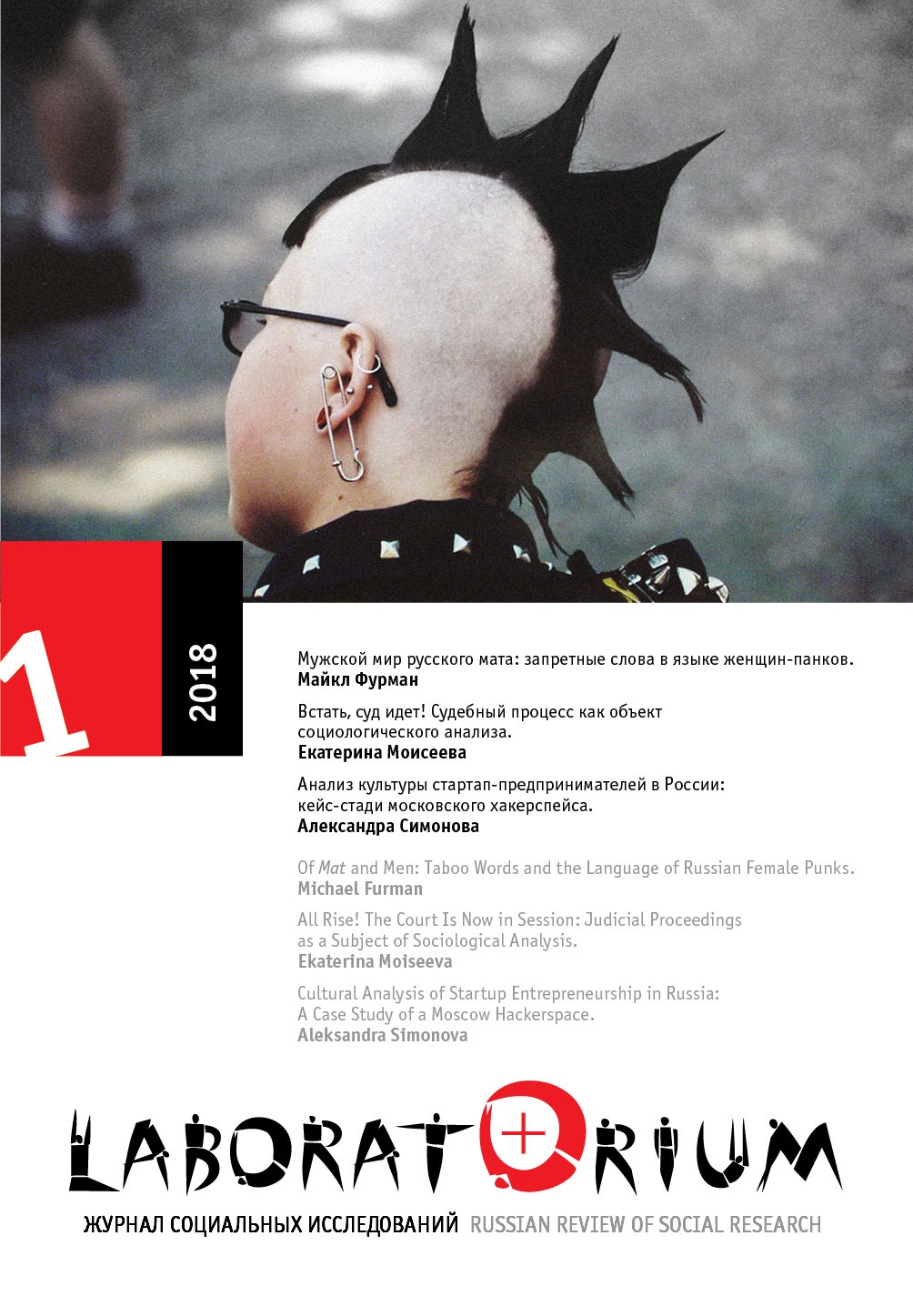Анализ культуры стартап-предпринимателей в России: кейс-стади московского хакерспейса
Cultural Analysis of Startup Entrepreneurship in Russia: A Case Study of a Moscow Hackerspace
Author(s): Alexandra SimonovaSubject(s): Social Sciences, ICT Information and Communications Technologies
Published by: Центр независимых социологических исследований (ЦНСИ)
Keywords: Startups; Hackerspace; Coworking; Hackers; Entrepreneurship; Precarity; IT Community;
Summary/Abstract: This article offers a critical anthropological analysis of Neuron, a Moscow-based “hackerspace” that attempts to provide an alternative, self-organized space for the creative IT industry and startup entrepreneurship. The study addresses the question of how the image, dynamics, and cultural practices of the global hacker space movement emerged and developed in Russia.The article is based on ethnographic work conducted from 2013 to 2015. I invoke a critical analysis of the discourses and practices of the hacker space community and Moscow startups in general. The metaphor of family was often invoked in the narratives of hacker space members about their organization, and this metaphor is employed in this article as a lens for a critical analysis of the discourses and practices of the hacker space community.Since the 2010s the Russian state has made efforts to promote the ideas of innovative business and startup entrepreneurship. Innopolis Skolkovo became a symbol of the Russian state-led modernization program that was launched in order to transform the Russian economy and overcome its dependence on natural resources. The Moscow hacker space emerged in 2011 as part of a wave of increased interest in innovative projects. However, it employed a very different bottom-up strategy for developing a place for high-tech projects. Neuron emerged as an alternative community to the major startup scene in Moscow that also provided infrastructure for startup companies that had been struggling to develop new technologies without a sufficient startup business environment.The problems faced in the course of this ambitious task are traced in this article. On the one hand, the Neuron hacker space promotes trust, knowledge, and the exchange of skills, as well as common strategies for technology and business development among its members. On the other hand, Neuron has not succeeded in building a horizontal community,gender equality, and an organizational structure that is supportive but at the same time driven by competition and a profit-oriented market economy.Article in Russian.
Journal: Laboratorium. Журнал социальных исследований
- Issue Year: 10/2018
- Issue No: 1
- Page Range: 51-78
- Page Count: 28
- Language: Russian

